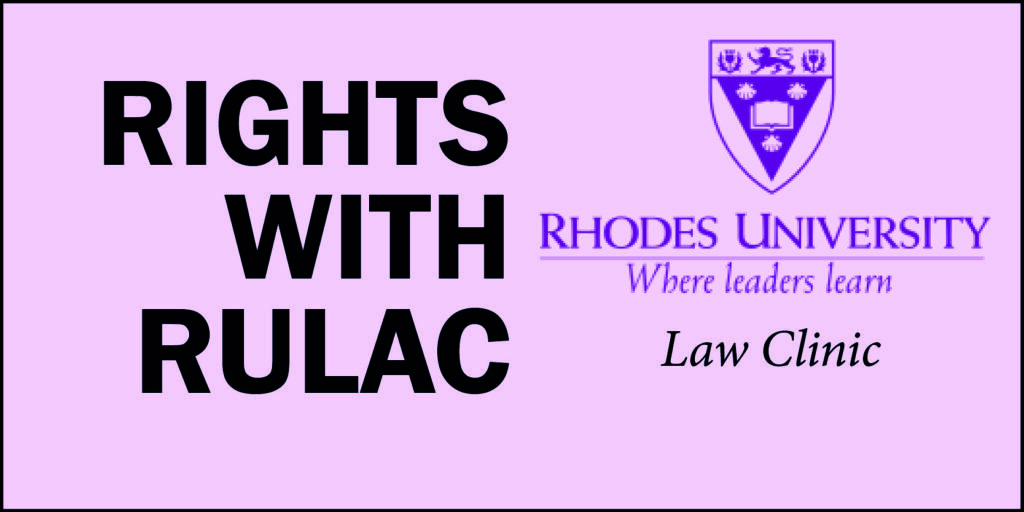Why was the land claims process instituted, and how does it work? The Rhodes University Law Clinic team explains.
From owners to farm workers
Nombuso Gcwala’s great grandfather, Phathekile Gcwala, used to live on a farm approximately 30 km outside of Bloemfontein. Mr Gcwala used to raise cattle and grow vegetables. According to stories from Nombuso’s family this is where her ancestors lived.
On or about 20 July 1914 Mr Gcwala was visited by a Mr Van der Merwe. He informed him that he wanted to purchase the Gcwala family farm. Mr Van der Merwe offered Mr Gcwala five cattle and all the vegetables that he and his family could take when vacating. Mr Van der Merwe gave the Gcwala family two weeks to vacate, failing which they would be forcibly removed. Mr Van der Merwe told Mr Gcwala that he could not refuse his offer as black people were not lawfully allowed to own land anyway so he was actually doing him a favour.
Mr Gcwala and his family had nowhere else to go, so they negotiated with Mr Van der Merwe that instead of them relocating and moving they would be farm laborers and continue to reside on the farm. Mr Van der Merwe accepted this offer and the Gcwala family went from being owners of the land to being farm workers for Mr Van der Merwe.
Light on land claims
South Africa’s racially discriminatory past denied the majority of black people access to productive land. The 1913 Natives Land Act is one such piece of legislation that ensured that many black people and communities were dispossessed of their land rights.
As part of their efforts to redress the unfair distribution of land that emanated from racially defined laws such as the Natives Land Act, the new democratically elected government of 1994 introduced policies to effect this.
This launched the Restitution programme. According to the Department of Rural Development and Land Reform, this program is responsible for the settlement of land restitution claims under the Restitution of Land Rights Act no 22 of 1994 and for the provision of settlement support for beneficiaries. The main objective of the program is to restore land rights.
How does this programme restore the rights of the Gcwala family who, like many others, were dispossessed of their land rights? The simple answer is that if the Gcwala family lodged their claim during the first period 1995-1998, they would either have received compensation or their claim would have been stayed.
A brief explanation of the lodging of land claims is as follows. A year after the first democratic elections, individuals, families and communities who were previously unfairly dispossessed of their land rights were granted the opportunity to lodge claims against the state for reparations. According to the Department of Rural Development and Land Reform, from 1995 to 31 December 1998 (the deadline for lodging claims), approximately 80 000 land claims were lodged.
Then on 16 February 2016 the Constitutional Court re-opened the lodging of new land claims for five years, from 1 July 2014 to 30 June 2019. However, the lodging of new claims has since been stayed till further notice.
The recent motion by Parliament to allow land expropriation without compensation has brought about a mine of confusion. The resolution established a review committee to consider all aspects of expropriation without compensation. The Constitutional Review Committee is due to report back to Parliament by 30 August 2018. This will hopefully shed light and provide much needed answers regarding the lodging and processing of land claims.
The Minister of Rural Development and Land Reform, Ms Maite Nkoana-Mashabane, has echoed the message by President Cyril Ramaphosa that expropriation of land without compensation “will be done in a manner that ensures food security, increases agricultural production and improves economic growth”. Further, according to the Department they will strive to accelerate land reform within the current policies and legislation while the Parliamentary processes are being finalised.
The National Treasury has over the Medium Term Expenditure Framework allocated the Department a sum of R10.8 billion to accelerate the settlement of the 2581 restitution claims and a further R4.2b to acquire 291 000 hectares of strategically located land.
Sipesihle Mguga
Rhodes University Law Clinic
RHODES UNIVERSITY LAW CLINIC HELPING YOU
The Rhodes University Law Clinic strives to improve access to justice through the provision of free legal services to indigent people in most areas of law. In addition to its New Street offices, Law Clinic staff are available to clients at the Assumption Development Centre (Konongendi), Nceme Street, Joza, every Thursday from 9am-12pm.
The Law Clinic also provides monthly workshops on a wide range of topics in order to raise awareness of people’s rights. The workshops are conducted by staff of the Rhodes University Law Clinic at various locations around Grahamstown. For more detail, please contact the Assumption Development Centre (Konongendi) or the Rhodes Law Clinic:
Rhodes University Law Clinic
41 New Street, Grahamstown
Telephone 046 603 7656
lawclinic@ru.ac.za
READ MORE ABOUT LAND RIGHTS HERE: bit.ly/GrocLandRIghtsBoook
http://www.grocotts.co.za/2018/03/19/lessons-about-land-rights/


